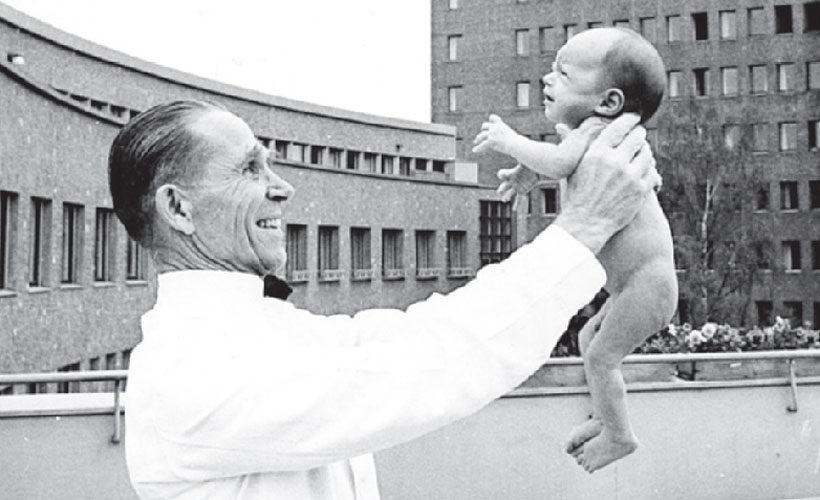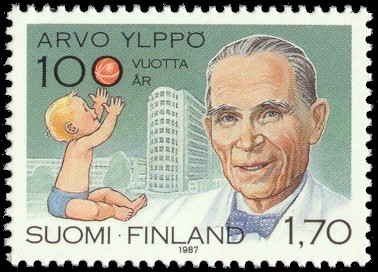Arvo Henrik Ylppö (1887-1992)

Arvo Henrik Ylppö was born into a farming family on October 27, 1887 in Akka, Finland (then part of Russia), the 5th of 12 children. He entered the University of Finland in 1906 and studied medicine there and also later in Göttingen. He moved to the Imperial Children’s Hospital (Kaiserin Auguste Victoria Haus) in Berlin in 1912, where he pursued his predoctoral and postdoctoral studies until 1920. He wrote his thesis about infants’ bilirubin metabolism in 1913, and graduated as a medical doctor in Helsinki in 1914.
After returning to Finland in 1920, he became a teacher at Helsinki University Hospital, and established the first child health clinic at the Children’s Castle Hospital in 1922. He became a Professor of Pediatrics in 1925. He wrote extensively in professional journals about child care, actively promoted Finnish nursing and public education, and was internationally known for his research on premature infants.
Ylppö retired as a professor in 1957, but continued his work with infant care and public healthcare initiatives. He was chief physician at the Children’s Castle Hospital from 1920 to 1963, and also had a private practice of pediatrics in Helsinki. He is widely credited with helping reduce the infant mortality rate from 10% in 1920 to 0.6% in 1992, one of the lowest rates in the world.
Ylppö received many honors during his life, including doctorates from the Universities of Königsberg, Giessen, Turku, and Tampere. He was an honorary member of the European and International Pediatric Societies and of the pediatric associations of Finland, Sweden, Norway, Denmark, Austria, Italy, Poland, and Great Britain. In 1952 the President of Finland named him ‘‘Archiater,’’ a special honor awarded to just one physician for life. Ylppö was awarded the Rosen von Rosenstein medal of Sweden in 1964, and on his 70th birthday Finnish physicians instituted a prize carrying his name that was to be given every five years ‘‘for special achievements in the field of pediatrics, especially neonatology and prematurity.”
Ylppö died on January 28, 1992 at the age of 104, and is buried in Helsinki. He left behind a vast legacy of research, publishing, teaching, and mentoring in the field of pediatrics and especially in improvements in the care of premature infants, and remains one of the most revered figures in the history of neonatology.

Last Updated on 03/31/23